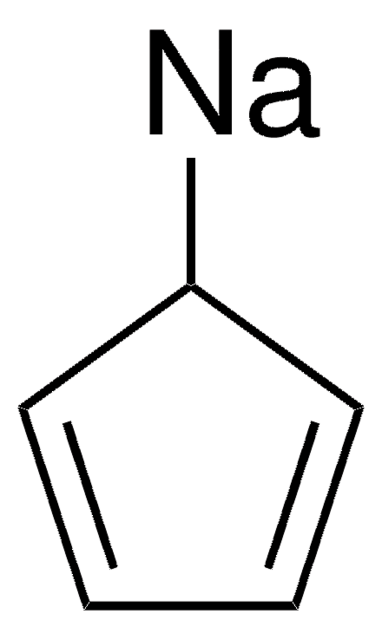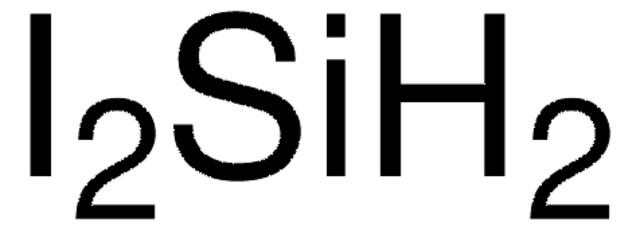440248
Dichloromethylsilane
≥97%
Sinónimos:
Methyldichlorosilane
About This Item
Productos recomendados
vapor density
4 (vs air)
Quality Level
vapor pressure
6.79 psi ( 20 °C)
assay
≥97%
form
liquid
autoignition temp.
471 °F
expl. lim.
>55 %
refractive index
n20/D 1.398 (lit.)
bp
41 °C (lit.)
mp
−93 °C (lit.)
density
1.105 g/mL at 25 °C (lit.)
storage temp.
2-8°C
SMILES string
C[SiH](Cl)Cl
InChI
1S/CH4Cl2Si/c1-4(2)3/h4H,1H3
InChI key
NWKBSEBOBPHMKL-UHFFFAOYSA-N
¿Está buscando productos similares? Visita Guía de comparación de productos
Categorías relacionadas
General description
Application
- A General and Selective Synthesis of Methylmonochlorosilanes from Di-, Tri-, and Tetrachlorosilanes - Discusses a method for synthesizing Methylmonochlorosilanes, showing potential for varied applications in chemical synthesis (Y Naganawa et al., 2020).
- Polymerization of methylsilylenes into polymethylsilanes or polycarbosilanes after dechlorination of dichloromethylsilanes. - Investigates the polymerization of methylsilylenes, offering insights into the production of polymethylsilanes or polycarbosilanes from Dichloromethylsilanes (Y Tian et al., 2016).
- Synthesis of low viscosity of polymethylhydrosiloxane using monomer of dichloromethylsilane - Focuses on producing low-viscosity polymethylhydrosiloxane through hydrolysis-condensation of Dichloromethylsilane, significant for various industrial applications (VF Arini et al., 2022).
Packaging
signalword
Danger
Hazard Classifications
Acute Tox. 3 Inhalation - Acute Tox. 3 Oral - Eye Dam. 1 - Flam. Liq. 2 - Skin Corr. 1A - Water-react 3
supp_hazards
Storage Class
4.3 - Hazardous materials which set free flammable gases upon contact with water
wgk_germany
WGK 1
flash_point_f
-18.4 °F
flash_point_c
-28 °C
ppe
Faceshields, Gloves, Goggles
Elija entre una de las versiones más recientes:
¿Ya tiene este producto?
Encuentre la documentación para los productos que ha comprado recientemente en la Biblioteca de documentos.
Los clientes también vieron
Nuestro equipo de científicos tiene experiencia en todas las áreas de investigación: Ciencias de la vida, Ciencia de los materiales, Síntesis química, Cromatografía, Analítica y muchas otras.
Póngase en contacto con el Servicio técnico











